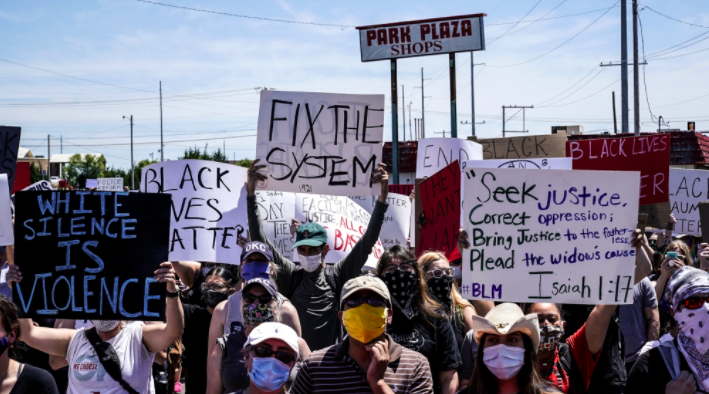The Strength of Sensitivity: Creating Change in an Unjust World
June 2, 2020
My family cares deeply about the world around us. When things aren’t right and people are suffering, we feel it in our bones. We ache, too. I have intense reactions to meanness and injustice. I am nostalgic about the places I have loved and left, and I feel deeply about the changes and challenges life throws at people. Sometimes, those emotions can suck.
In second grade, I moved from New York City to Westport. My parents’ friends assured them that because my siblings and I were so young that the move wouldn’t affect us. I cried every day for months and vividly remember flipping through my yearbook, sobbing as I looked at the friends and teachers I would never see again.
It can feel lonely when things weighing us down appear to barely touch other people. It feels even lonelier when society tells us to not feel and to suppress our emotions.
After coming home from his first day of 7th grade at a new school, my brother Nate collapsed onto the living room sofa and began to cry into his hands. I immediately jumped up and asked him what was wrong. Through his tears, Nate explained he missed his old friends, didn’t know where anything was in the building, and got lost on his way to Spanish. He wished he was still at his old school. Disregarding his overflowing emotion, I placed his feelings in a neat, small box by telling him to toughen up and be strong. Instead of giving him a shoulder to cry on, I turned my back to my brother and snapped, “It was your first day. Everyone’s first day sucks. Get over it.”
I convinced myself that I was preparing him for the real world, a soul-crushing world where those who fail to push back tears are stomped on and labeled as weird and not normal. I’ve always been extremely protective of my brother because being an emotional boy is difficult, and my mechanism for protection was desensitizing him. If the world was tough, we had to be tough too.
But society has it all wrong; we all have it wrong. We believe toughening up is a barrier for pain, but by avoiding pain, we actually avoid our authentic selves and our ability to empathize with others.
I deeply regret telling Nate to stop crying. I believed he was weak, and that he needed to be strong to survive middle school. It didn’t occur to me that being a vulnerable, loving boy is strong and brave. I had accepted and become a salesperson for the uncaring aspects of our society, a society built on stifling uniqueness and vulnerability. By pushing all the imperfect, scattered ends and pieces under the rug, we deceive ourselves that they don’t exist. In a world built on efficiency, it’s easier to dismiss the highly sensitive and call them broken than admit the truth that people aren’t broken, but responding to a broken world.
When people distance themselves emotionally, they become insensitive to other humans, allowing them to commit horrific acts. Nowhere was this more clear than in the recent killing of George Floyd, as a Minneapolis police officer pinned Floyd to the ground by pushing his knee into Floyd’s throat for nine minutes; despite repeated pleas from the onlookers and Floyd’s cry of “I can’t breathe,” the police officer did not budge. The police officers saw Floyd as ‘the other,’ less than human and dangerous. They lost empathy.
It would be inaccurate to assume it is only the police officers who are at fault in this situation. The officers who acted violently on their deep-rooted prejudices and bigotry are primarily responsible for their deaths but by removing ourselves from accepting the responsibility for the murders of Floyd, Arbery, and Cooper, we are also culpable. White people have the freedom to choose whether or not to leave the table when talking about race. When news headlines become overwhelming and shatter the America that has been fair to white people, we close our ears, because we can and it’s easier than hearing a painful truth. Despite not directly hurting people or outwardly acting on our unconscious biases and fears, we believe we are not part of the problem, but in reality, we are complicit in perpetrating old prejudices. My fear is that in a week, the storm of social media posts and stories and news headlines will die down, and the name George Floyd will become just another name on the list. White people will walk away, and people of color will continue to bear the burden of the deaths of their family members, teachers, friends, and neighbors. Nothing will change if we don’t let ourselves feel and respond to those feelings. Even when emotions are painful, we must commit ourselves and continue to work toward justice for all.
I recognize that I have not done nearly enough. I am on a journey, and the first step is to listen and educate myself. To be a good listener, we must look not for resolution but for moments of connection. White people’s first impulse is to fix; in doing so we forget our empathy. Listen to others’ stories and remember the stories of George Floyd, Ahmaud Arbery, and Breonna Taylor. Let the pain touch you. Feel the burden of these unjust deaths. We can no longer let people of color carry the burden and weight alone.




